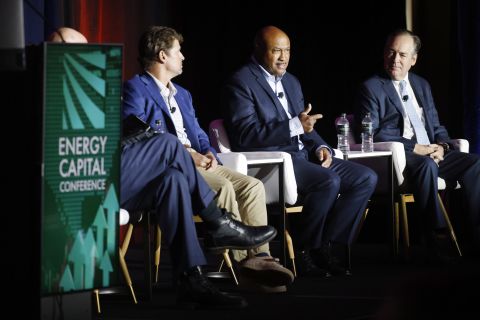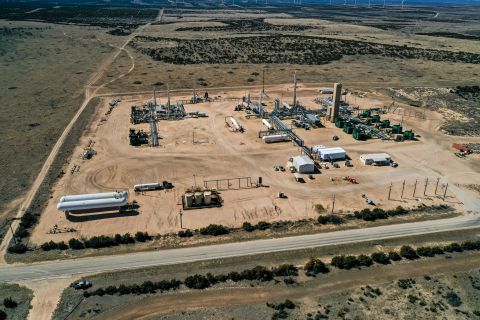When I read this article by Mark Schleifstein, an editor at the New Orleans “The Times-Picayune,” I knew I had to share it. The title alone is priceless: “U.S. Supreme Court declines case blaming energy companies, global warming for Hurricane Katrina damage.” Americans are notoriously litigious, but this really takes the cake! Apparently, the case was brought by Mississippi homeowners against (among others) Murphy Oil Co., UOP, Shell Oil, ExxonMobil, BP America, Chevron USA, ConocoPhillips, Dow Chemical, Duke Energy, FirstEnergy, Foundation Coal Holdings, Honeywell International, International Coal Group, Massey Energy, Peabody Energy, Reliant Energy and the Tennessee Valley Authority. The homeowners claimed that by emitting greenhouse gases, these companies and others of the same ilk had helped cause global warming, which the homeowners said “exacerbated Katrina’s wrath.” Quite the lineup of companies, isn’t it? I guess if you’re going to make accusations that could result in monetary awards, you should aim high! Unarguably, Hurricane Katrina was a violent hurricane, and it caused enormous damage along the Gulf Coast. Why it was so large is still a mystery to practically everyone but meteorologists. Certainly, warmer than usual weather conditions were a factor. Pinning the cause for those warmer conditions on a single industry, however, is a bit of a stretch. In reading the article, I discovered that the Supreme Court actually refused to “re-open” the case. If you’re interested to know how this came about, read on. The following is an excerpt from Schleifstein’s article. The Supreme Court was asked to step in after so many members of the 16-judge 5th U.S. Circuit Court of Appeals had recused themselves that it could not conduct a rehearing of a partially successful appeal of the suit. At issue for the nation’s highest court was the question of whether the 5th Circuit should have dismissed the appeal after determining that it lacked a quorum. Under the circuit court’s rules, the court’s original three-judge decision in favor of the homeowners had been vacated after the full court agreed to rehear the case, and the appeal was dismissed by the failure to get a quorum. In the end, it appears that the ludicrous nature of the case was less of an issue than whether due process was followed when the case was dismissed. This too is truly American! Although it is amusing to see the ridiculous nature of the legal workings in America, the inferences that can be drawn about the attitude of the American people toward oil and gas companies is sobering. The bad press that surrounded the Deepwater Horizon incident and subsequent investigations into BP had serious repercussions, and those repercussions will continue to be felt in the oil and gas industry in the US and beyond for years to come. “Big Oil” in its many forms has become a target for negativity from the political level to the level of homeowners along the Gulf Coast. Though the “Times-Picayune” story in and of itself is laughable, what it says about the attitude of Americans toward the oil and gas industry is anything but funny.
Recommended Reading
Post Oak Backs New Permian Team, But PE Faces Uphill Fundraising Battle
2024-10-11 - As private equity begins the process of recycling inventory, likely to be divested from large-scale mergers, executives acknowledged that raising funds has become increasingly difficult.
SLB Earnings Rise, But Weakened 4Q and 2025 Ahead Due to Oil Glut
2024-10-22 - SLB, like Liberty Energy, revised guidance lower for the coming months, analysts said, as oilfield service companies grapple with concerns over an oversupplied global oil market.
Quantum Raises $10B for Oil, Gas, Midstream, Energy Transition
2024-10-29 - Quantum Capital Group raised $5.25 billion for its private equity flagship, Quantum Energy Partners VIII. A source told Hart Energy that most of the firm’s capital has gone into oil and gas because it offers the best risk-adjusted returns.
Midstream M&A Adjusts After E&Ps’ Rampant Permian Consolidation
2024-10-18 - Scott Brown, CEO of the Midland Basin’s Canes Midstream, said he believes the Permian Basin still has plenty of runway for growth and development.




